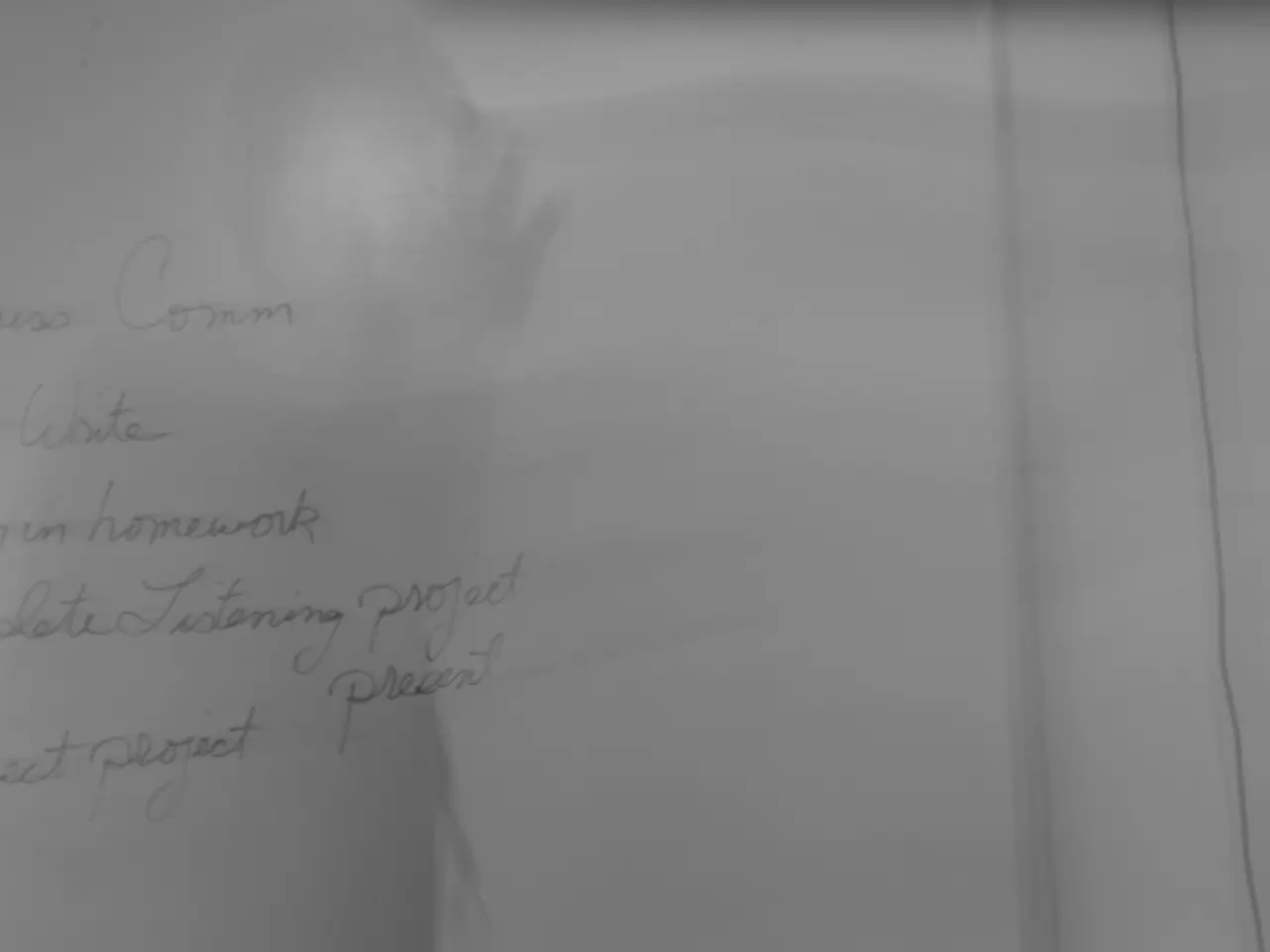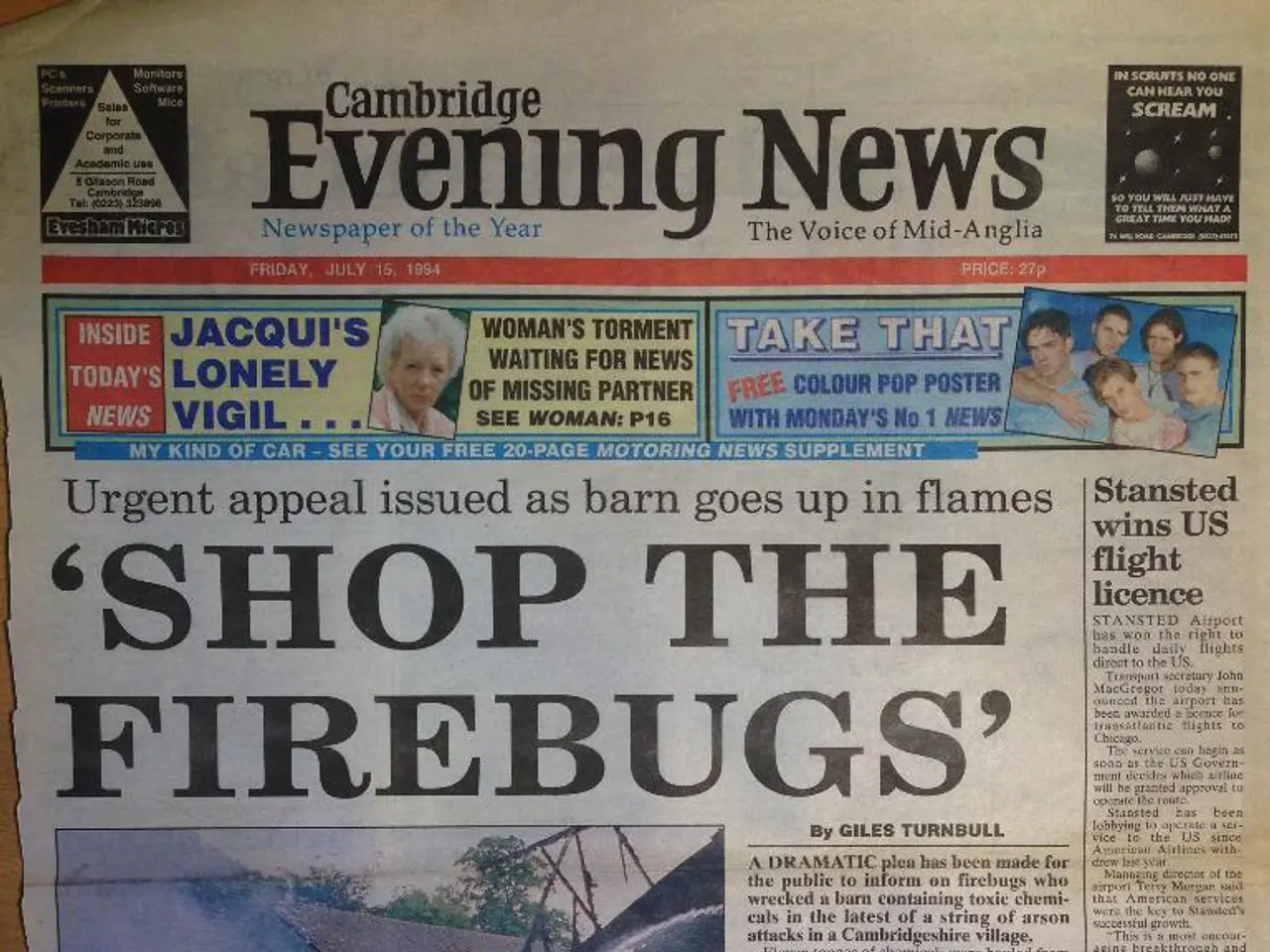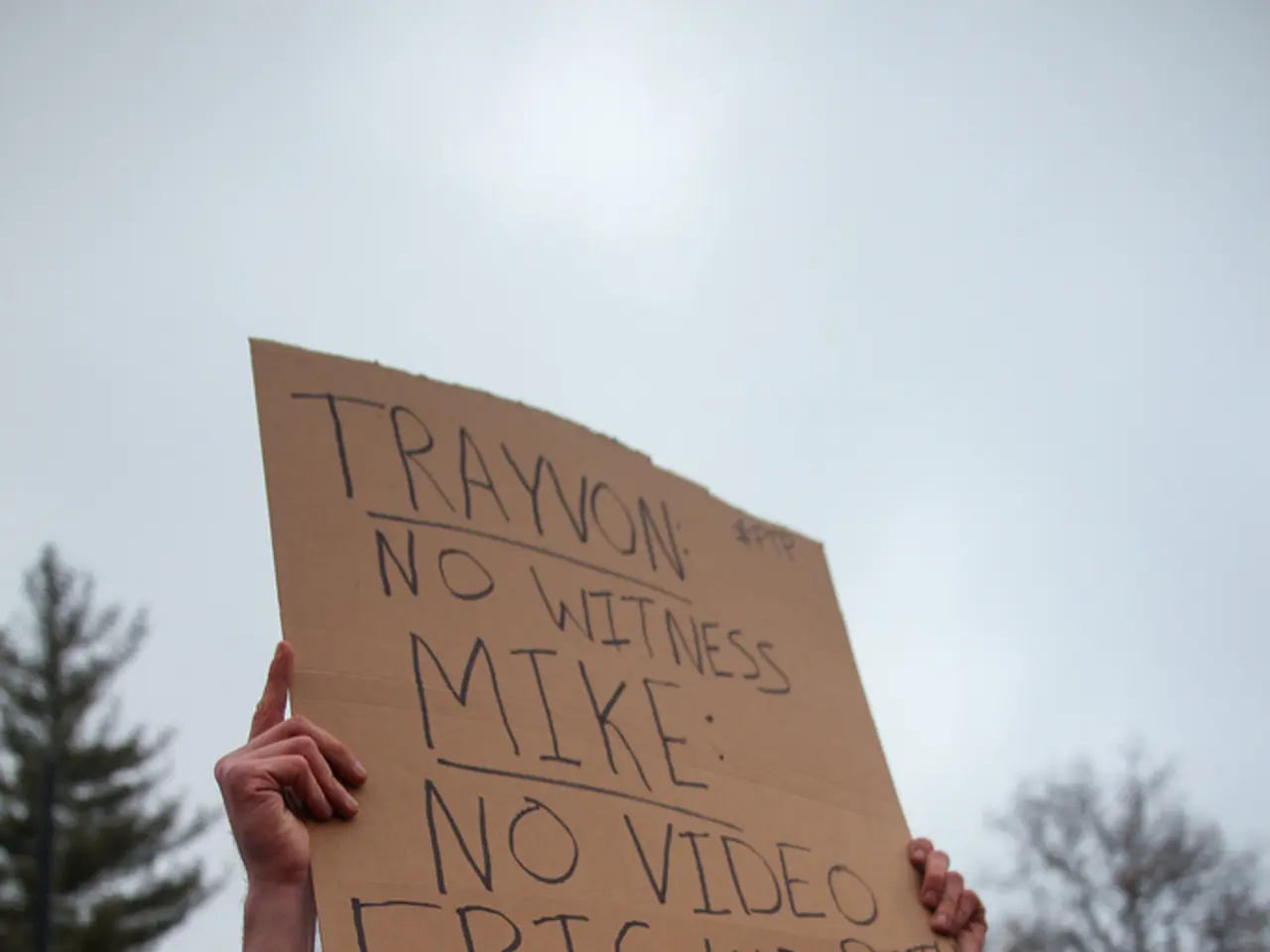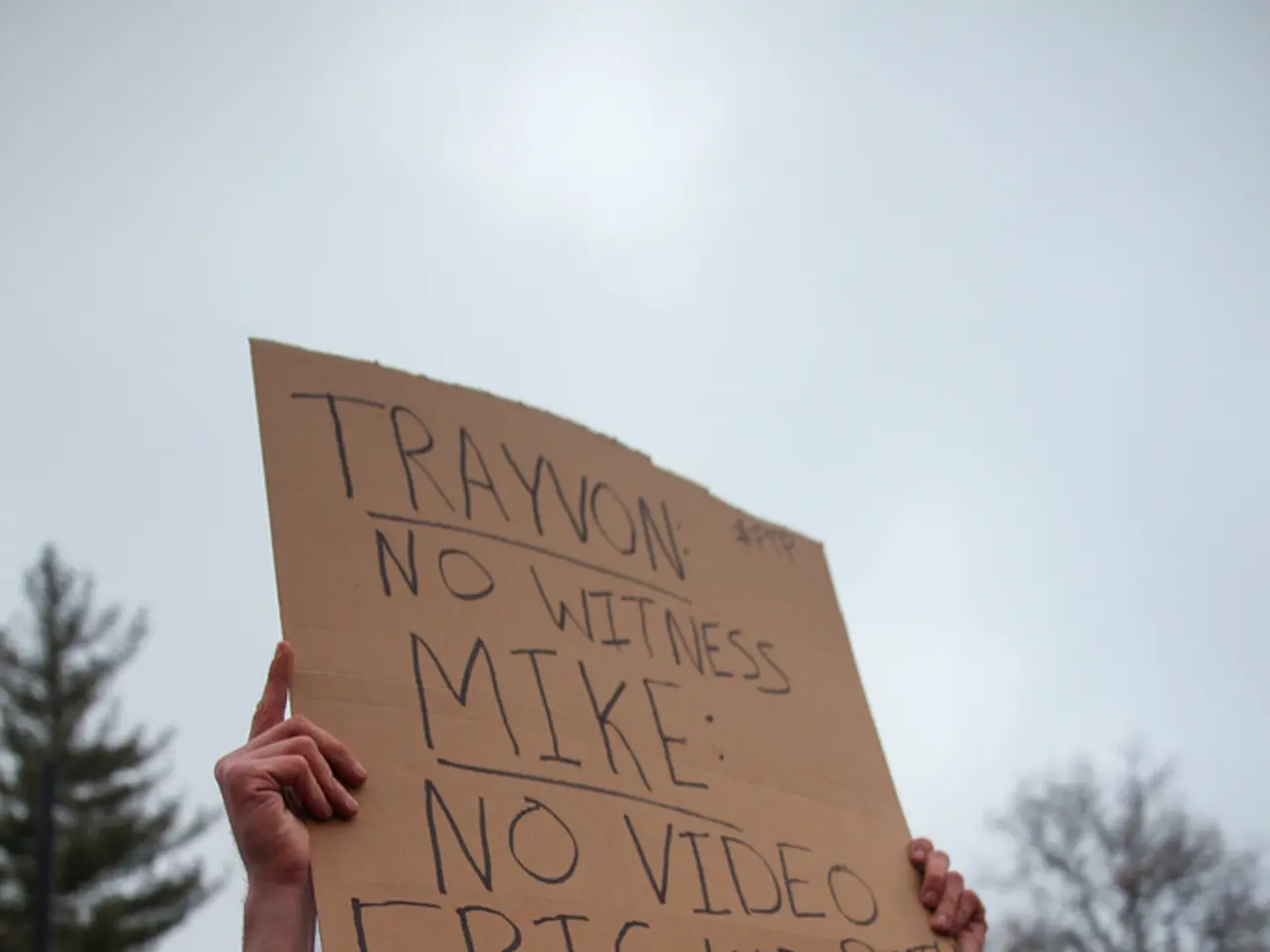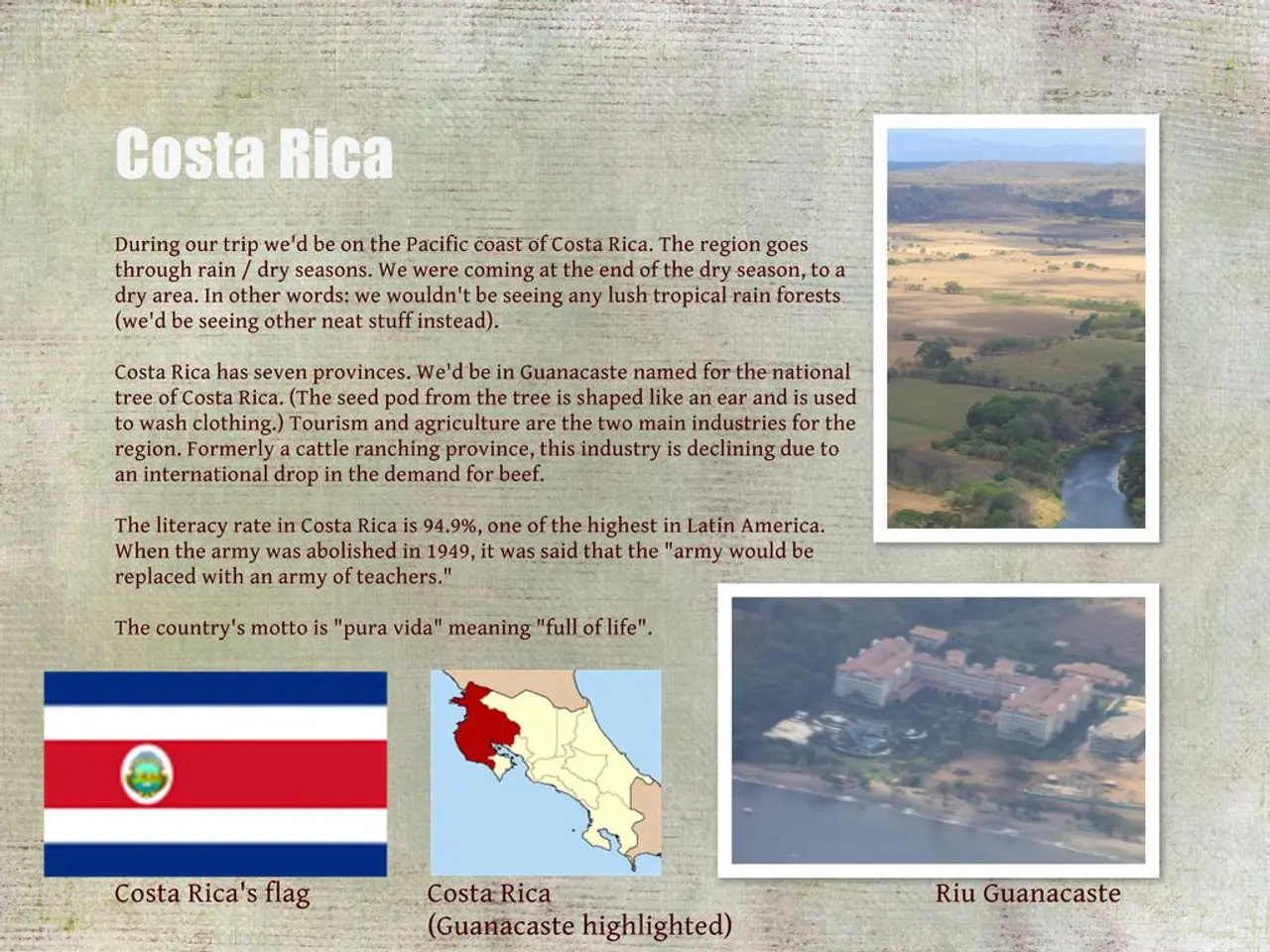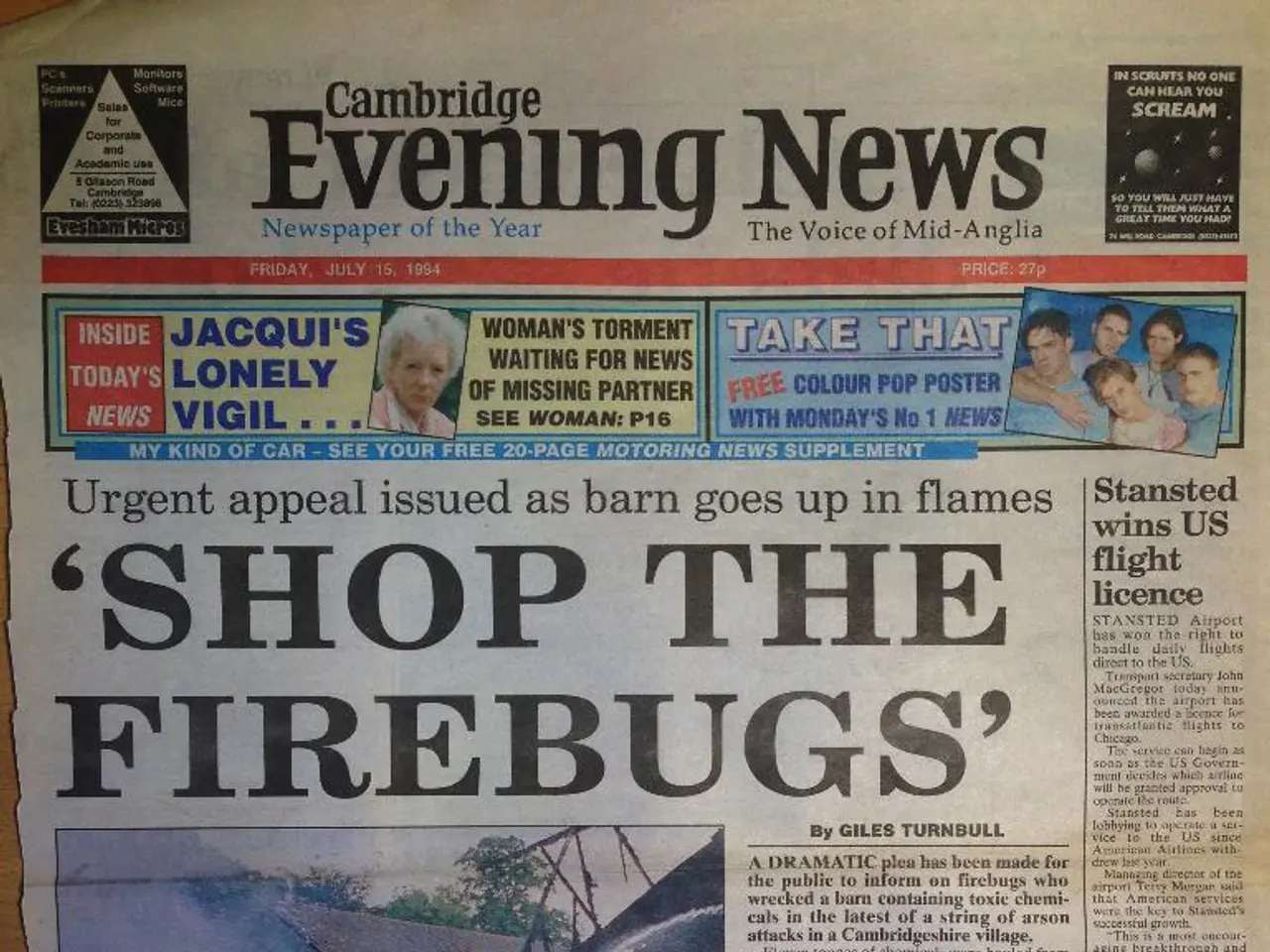U.S. Senator Rand Paul declares that the bourbon industry expresses distaste towards being used as a pawn in domestic trade disputes
The European Union (EU) and the United States (U.S.) are currently embroiled in a complex trade dispute that has seen the imposition of increased tariffs on EU wine and spirits, including bourbon, causing concern for both sides.
As of August 1, 2025, a 15% tariff on EU wine and spirits has taken effect on imports into the U.S. This tariff applies amid ongoing negotiations, with no immediate exemptions granted for alcoholic beverages [1][2][4]. The new tariff is more burdensome than the previous 10% rate, causing concern among European producers and supply chain stakeholders [2].
Prior to this, the U.S. had a 10% tariff on European wine and spirits. The increase to 15% is expected to impact consumers this fall, according to Senator Rand Paul of Kentucky, who represents the epicenter of the bourbon industry [4].
The EU had suspended its 25% retaliatory tariff on American bourbon for about three years but is now threatening to reinstate it, which would hinder U.S. exports to Europe significantly [3][4]. This move by the EU represents a setback for American bourbon exporters and complicates ongoing trade talks.
Key points include the U.S.-imposed 15% tariff on EU wine and spirits, the potential EU reinstatement of a 25% retaliatory tariff on American bourbon, and the ongoing trade negotiations aiming to secure exemptions or reduced rates for these products [1][2][4].
The bourbon industry in Kentucky, the epicenter of the bourbon industry, produces 95% of the world's supply, supporting over 23,000 jobs and generating $9 billion annually [4]. Senator Rand Paul has warned that the industry is at risk due to President Trump's tariffs [4].
Chris Swonger, president and CEO of the Distilled Spirits Council of the United States, has stated that eliminating tariffs or placing spirits on a tariff exemption list would be an ideal outcome of the trade negotiations [4]. The EU is America's top client for imported spirits, with approximately $1.2 billion worth of U.S. spirits imported in 2024 [4].
The trade negotiations have not yet resulted in a resolution for the spirits sector, with the industry stating that it should be immune [4]. Trade uncertainty is affecting global booze markets, with Swonger expressing disappointment about the lack of agreement on spirits in the deal between the U.S. and the EU [4].
WhistlePig Whiskey founder Raj Bhakta has discussed President Donald Trump's tariffs, expressing concerns about the impact on the bourbon industry [4]. Paul has mentioned that he hasn't had much success in the past when businesses have asked for exemptions from tariffs [4].
Alcohol also ranks among the European Union's top exports to the U.S., totaling approximately $10.5 billion in 2024 [4]. The bourbon industry dislikes the tariffs, according to Senator Rand Paul, who has advocated for the industry's interests during the trade negotiations [4].
Sources:
[1] Eurostat data was used to determine the value of the European Union's alcohol exports to the U.S. in 2024. [2] As of August 1, 2025, a 15% tariff on European Union wine and spirits, including whiskey, has taken effect on imports into the United States. This tariff applies amid ongoing negotiations, with no immediate exemptions granted for alcoholic beverages. [3] Regarding bourbon specifically, the European Union is threatening to reinstate its retaliatory tariffs on American bourbon, potentially up to 25%**, reversing a prior suspension that had allowed U.S. distillers to rebuild market presence in the EU. [4] These facts were compiled from various news articles and reports on the ongoing trade dispute between the U.S. and the EU concerning spirits.
- The newly implemented 15% tariff on EU wine and spirits, including whiskey, has caused significant concern among European producers and supply chain stakeholders, and it is anticipated to affect consumers this fall, according to Senator Rand Paul of Kentucky.
- The EU's potential reinstatement of a 25% retaliatory tariff on American bourbon would hinder U.S. exports to Europe significantly, complicating ongoing trade negotiations and increasing the burden on the bourbon industry, which is a vital Economic sector in Kentucky, representing 95% of the world's supply, supporting over 23,000 jobs, and generating $9 billion annually.
